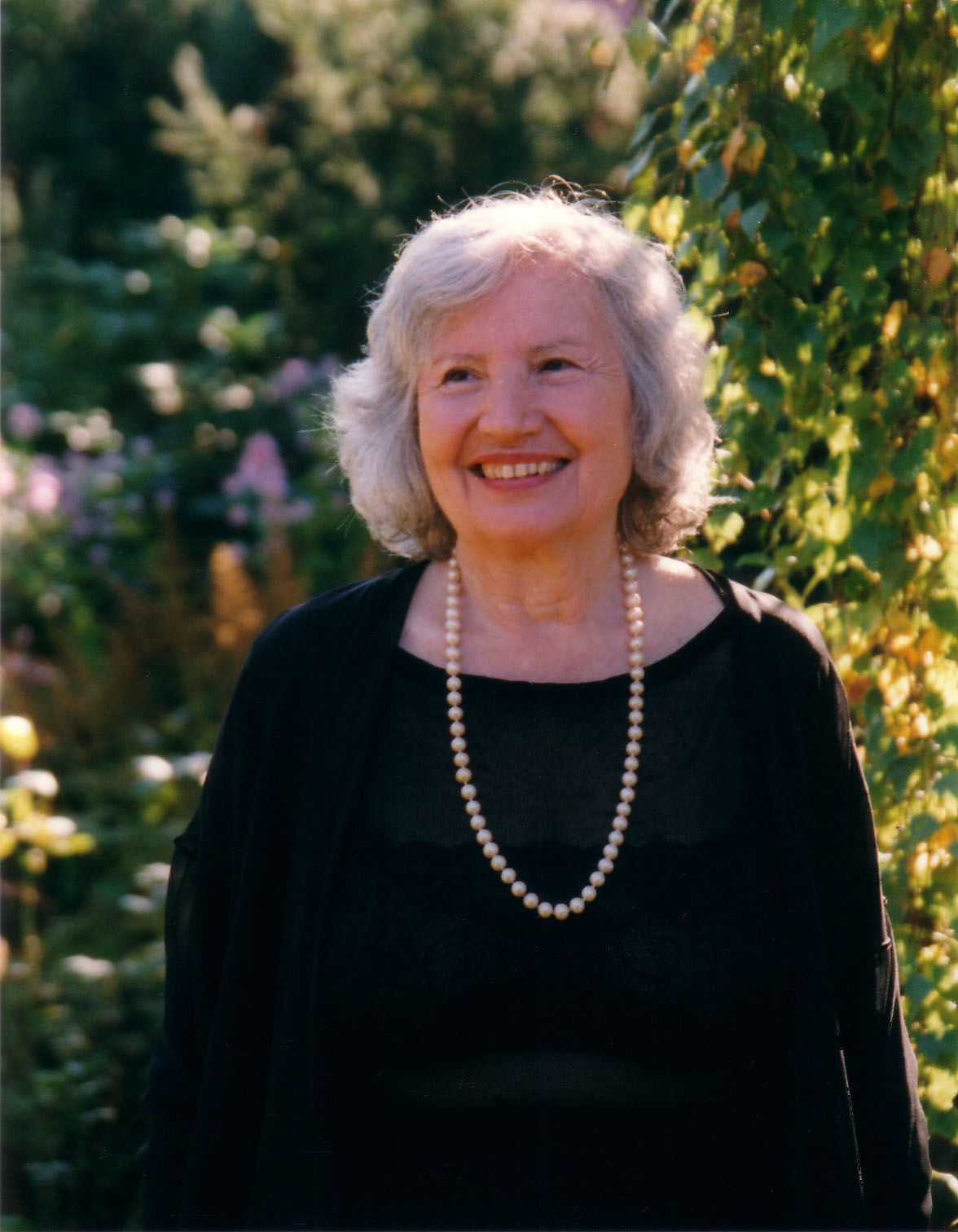We are delighted to be celebrating the 100th birthday of German-American composer Ruth Schonthal this year. Her life and career are characterized by extraordinary talent, overcoming adversity and artistic innovation.
Ruth Schonthal was born in Hamburg on June 24, 2924. She showed her extraordinary talent at the age of five and was celebrated as a child prodigy in Berlin in the 1930s. She began her musical education at the Stern Conservatory in Berlin, where she studied piano, music theory and composition until she was expelled by the National Socialists in 1935 at the age of nine due to her Jewish origins.
Her emigration initially took her to Stockholm, where she enrolled at the Royal Swedish Academy of Music and published her first composition, the Sonatina for piano, in 1940. Due to the uncertain political situation, she emigrated with her family to Mexico in 1941. There she studied composition with Manuel María Ponce and achieved great success both as a composer and as a pianist. Her path eventually led her to New Haven, USA, where she studied with Paul Hindemith at Yale University from 1946 to 1948.
After graduating, Schonthal initially earned her living by composing advertising jingles and pop songs. As her success as a composer grew, she began performing her own works and eventually became a lecturer at the Westchester Conservatory of Music. She worked as a professor of composition at New York University until the end.
She did not return to Germany until 1980, 42 years after her emigration. She subsequently undertook numerous concert and lecture tours throughout Germany. Furore Verlag has been publishing Schonthal’s compositions since 1997, and in 1999 the Berlin Academy of Arts set up the Ruth Schonthal Archive with letters, photos and documents. Her catalog of works comprises over 100 pieces of music, including three operas, numerous orchestral works, ballet music and songs.
Ruth Schonthal’s musical style has been described by the New York Times as an eclectic mix of European musical tradition, Mexican folk music, aleatoric and minimal music. Her artistic legacy was donated to the Berlin Academy of the Arts, where the Ruth Schonthal Archive can also be found.
She died on July 11, 2006 in Scarsdale near New York City.
uth Schonthal’s deep attachment to her music and her tireless dedication characterized her creative power. Her deep dedication to her musical expression was not just an artistic principle for her, but rather a philosophy of life that she conveyed through her works “.For me,” says Schonthal, “the opposing elements, the opposite ends are one and the same thing. They have a magnetic attraction to each other, they are never static. I consciously combine the good old with the good new because I come from the same background and because I believe that every revolution throws the baby out with the bathwater. I am not religious, but I believe in a spirit of devotion.
We hope that her works will receive the worldwide attention on the concert stages that they undoubtedly deserve – especially on the 100th anniversary of her birth in 2024.
Ruth Schonthal – Events 2024:
Concerts:
June 27, 2024, 7:30 p.m.
Ruth Schonthal – her life and times (I)
First part of a three-part homage
Venue: Mendelssohn Remise
Jägerstraße 51, 10117 Berlin
with: Theodor Flindell & Maressa Portilho (violins)
Amanda Bailey (viola) and
Petra Kießling (violoncello)
further information
Sunday, April 28, 2024, 8:00 pm
Jewish Chamber Orchestra Munich
RUTH SCHONTHAL (1924-2006)
Concerto for horn and chamber orchestra (1980)
Munich Kammerspiele, Schauspielhaus Munich
with: Christian Loferer, horn
Daniel Grossmann, conductor
further information
Radio report:
Deutschlandfunk Kultur
Perhaps home is always where I am not. The composer Ruth Schonthal.

